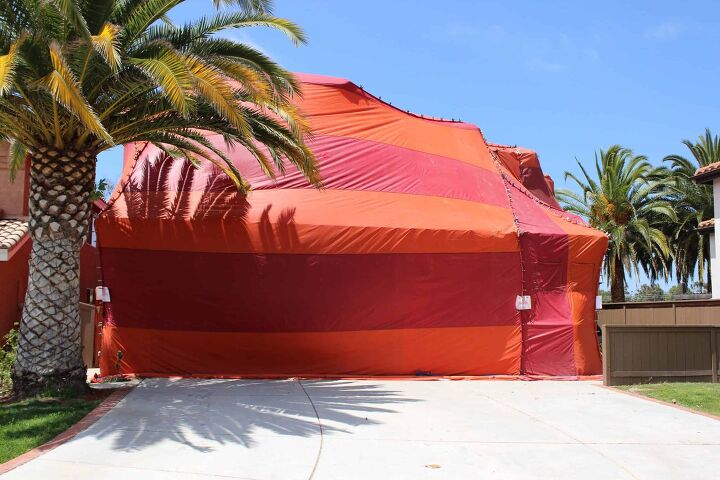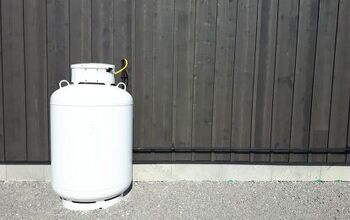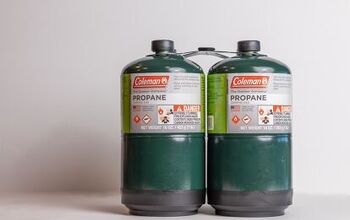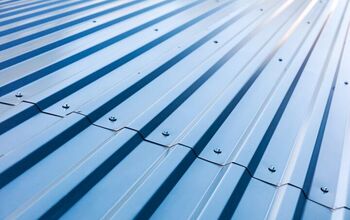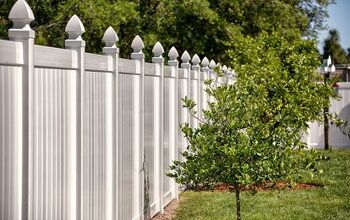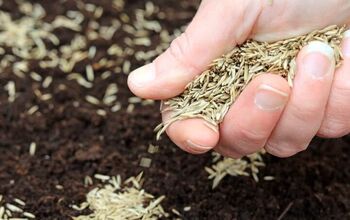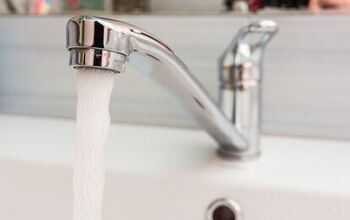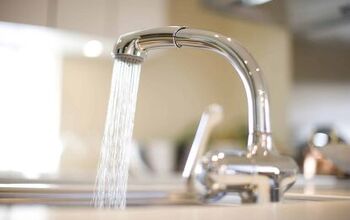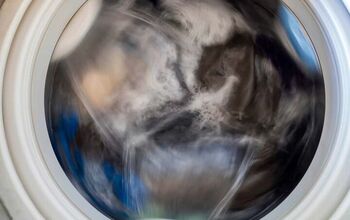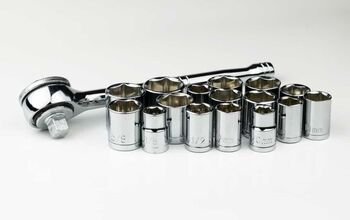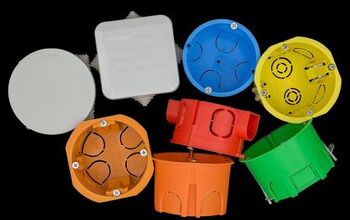How Long Does Termite Tenting Last? (Find Out Now!)

If you have a termite infestation in your home you may be considering fumigation. This is one of the best methods of killing off termite colonies and giving you peace of mind. While it may seem like an involved process, with the proper planning, everything will go smoothly, but how long does termite tenting last?
The process of termite tenting lasts three days for an average house size of 2,000 to 2,600 square feet. This time includes roughly 6 hours of fumigation and the waiting period of 24 to 72 hours after termite tenting. The entire termite tenting process lasts a week for larger homes. Termite tenting protects your home from termites for between 4 and 10 years, but yearly inspections are essential.
Typically, it takes at least 6 hours for the fumigant to leave the house after termite treatment. After removing the tents, the fumigator will test each room of the house using a sensitive fumigant clearance device. This step is to make sure that the air is clean for safe re-entry.
Do You Need Pest Control Services?
Get free, zero-commitment quotes from pro contractors near you.

What Are Termites?
Termites are insects that feed on wood, which is a major material in many homes. They look similar to ants but are more closely related to cockroaches, and they live within colonies. There are around 50 species worldwide with 3 being the most commonly found in homes.
They do not have many ways to defend themselves, so they stay concealed as often as possible. This is why you won’t often see termites themselves, but only the damage they cause.
Termite Tenting and Fumigation
If you have a bad case of termite infestation, your only option may be for tented fumigation. This is the most thorough way to get rid of termites and stop them from doing any more damage to the structural integrity of your home.
A ‘tent’ is made up of multiple tarps fastened together around your home. The tent keeps the gas inside to build up to the correct toxicity to kill any termites inside your home.
Professionals pump Sulfuryl Fluoride into your home to kill the termite colony. This gas is not only toxic to termites, but also to humans, pets, fish, and even plants. It will quickly dissipate after the tent comes down, where it will rise up into the atmosphere and away from your home.
The fumigant will circulate throughout your home to reach the cracks and crevices within the wood, where termites have tunneled and live. Termites breathe in this gas which depletes their oxygen supply, affects their nervous system, and causes their death.
Fumigation is harmful to humans and animals, so it is important to take the proper steps to ensure everyone’s safety.
How Long Does Termite Tenting Last?
Before you prepare for termite fumigation you need to know a reasonable estimation of the timeline. The process of pumping the gas and letting it infiltrate your home and dissipate takes about 6 hours. However, you typically need to wait about 72 hours after tenting before you can return home.
Therefore, plan for the entire process to take about three days if you live in an average size house of 2,000 to 2,600 square feet. However, if you live in a larger home, termite tenting lasts closer to a week.
Also, you need to pay attention to environmental conditions like wind, rain, etc. that can add time to the process.
Should Termite Tenting Be A Last Resort?
Most professional termite exterminators advise only using tenting fumigation when you have an extremely high infestation level. Or, another situation would be if you keep dealing with return termites.
The reason is that termite fumigation works specifically against drywood termites, not subterranean termites. Although the gas will kill any subterranean termites that are inside your home, it won’t penetrate the soil. This means it won’t reach the termites underground, leaving them behind to invade your home later.
If you are unsure about what to do, have a professional termite controller inspect your property to determine your type of termite infestation first.
Preparing For Termite Fumigation
Step 1: Find Alternative Housing
You will need a place to stay while the fumigation is happening. Because you will not be allowed back into your home once this has started, it is important to make sure that you have everything with you that you will need.
Ask friends or family if you can stay with them and if that is not an option, rent a hotel or an Airbnb. Not only will your family need a place to stay, but all pets and plants will also need to come with you. This includes cats and dogs as well as fish, reptiles, birds, and any other living things within your family.
Also, make sure to pack up and take any valuables with you. If there are certain things you can’t take with you, take photos of these items to give you peace of mind in case they go missing.
Step 2: Shut Off The Gas And Unplug Appliances
While you want to leave the water and electricity on during fumigation, there are some things you will need to turn off. Any exterior lights and those that are on timers, air conditioning units, and natural gas, will need to be turned off or unplugged.
Most fumigation companies will schedule gas shut off with the utility company on their own but check beforehand to make sure this is done. It’s also wise to unplug your appliances, televisions, and computers before leaving home.
However, do not turn off the main electrical supply to your home. The fumigators will use fans during the process and may need to access your electricity.
Step 3: Open All The Interior Doors
Opening all the doors in your home is a vital step, as it allows the fumigant to pass through every space unhindered. Not only will you want to open the doors to each room, but also all cabinets, drawers, closets, appliances, and safes.
Every space in your home will need to be open to receive the gas that will kill all the termites. Raise the blinds and drapes on your windows as well, in order to allow the fumigator easy access into your home.
Step 4: Seal Food And Consumables
For food items, you can either move these off-site with you or double seal them in special Nylofume bags that will be provided by the fumigator. This includes not only your food but all medicine, tobacco, dental products, and pet food.
The only products that do not need to be sealed are those that are in unopened bottles, cans, and jars with the original seal intact. Your fumigator should do an inspection to make sure that all the necessary items have been properly sealed, before starting the fumigation process.
Step 5: Prepare The Area For Termite Tenting
Take a walk around the perimeter of your house and check for any objects that may obstruct the tent. These include outdoor furniture, grills, toys, bikes, and anything else that could get in the way.
You also should remove roof-mounted items like antennas or satellite dishes. Otherwise, the heavy tarps the fumigators use could damage these items.
You will always want to rake back gravel and mulch at least a foot from your foundation, this way the fumes will not be hindered as they make their way into every crevice of your home.
Watering the soil up to 18 inches from the exterior walls of your home will also help protect shrubs and plants alongside your home. The best time to water this area is the day before fumigation.
Step 6: Lock Up Your House But Leave Your Keys For The Fumigator
The last step is to lock up and secure your home. Make sure all exterior doors are closed and locked. However, leave keys for the fumigator, as they will need access to every part of the house.
They will do a final inspection to make sure that the gas will have an easy pass through every room and space of the house. After the inspection, they will lock up your home, as well as use a secondary locking system on all doors. This is a safety precaution in order to prevent anyone from trying to re-enter the home, as it will soon be filled with toxic gas.
The fumigator will also put up a sign alerting people that fumigation is in process. This will deter anyone from trying to enter your home.
He will also test the air quality of your home before anyone can reenter. The gas must be one ppm or less everywhere in your home before you will be able to reenter your property.
Do You Need Pest Control Services?
Get free, zero-commitment quotes from pro contractors near you.

How Long Does Termite Tenting Last Against Termites?
Termite tenting can protect your home from termites for between four and ten years. However, yearly inspections are critical for ultimate termite protection. Some experts recommend performing termite tenting every 5 to 10 years.
However, if dealing with dry wood termites, you can also get spot treatments for small areas. Spot treatments can help you avoid tent fumigation and keep termites at bay.
Natural Ways To Get Rid Of Termites
There are many ways to get rid of termites, termite tenting is just one of them. Natural methods might not be as fast, and often not as foolproof, but you may want to consider trying them out first. If you prefer to try some DIY termite control, here are a few options.
Removing Mulch
Mulch is one of the most ideal food sources for termites. It consists of cellulose and also retains moisture, which is a big draw for termites.
Termites like the moist protection mulch provides. Removing mulch from around your home can help mitigate the termite problem before it starts.
Sunlight
Bright sunlight is a death spell for termites. This is why if you have termite-infested furniture, the recommendation is to place it outside in direct sunlight.
Clear away the brush and landscaping from around your home to expose any termite colonies. You can also use UV lighting to kill termites.
Termite Predators
There are a few other insects that will devour termites in heavy quantities.
Parasitic nematodes are roundworms that feed on termites and leave your wood intact. You can purchase them online or in specialty stores and then release them into an area where you suspect termites. Nematodes will reproduce and seek out termites until they destroy the colony.
Related Questions
Do I need to wash dishes after termite fumigation?
Termite fumigation involves pumping toxic gas throughout your house to kill creatures inside the walls that are causing damage to your home. Of course, this would make you wonder if there will be residue left behind, once you are able to go back into your house.Fortunately, the gas leaves behind no residue at all. You will not have to clean your home in any way, and this includes wiping down countertops, vacuuming the floor, or cleaning dishes.
Does tenting a house kill all bugs?
While tenting fumigation is very successful at killing off termites, the type of gas involved will only solve the termite problem. Although most of the termites will die while your home is tented, It can sometimes take up to a week for the entire colony to be killed off.If you see other creatures after fumigation, such as ants or roaches, this could be because they are feeding on the dead termites. This is why many fumigators recommend some kind of Total Home Care treatment, which includes other kinds of treatments to take care of additional pests.
Will I experience any side effects from termite fumigation?
Although unlikely if proper procedures are followed, some people might experience mild nausea, vomiting, chest pains, headaches, breathing issues, or diarrhea. If you have any of these symptoms following termite fumigation, see your doctor immediately.

Sean Jarvis is an interior decorator, writer, and expert handyman. Well versed in everything home improvement, he is a savant at manipulating words and spaces and upgrading everything around him. Sean specializes in writing concise guides about appliance repair and installation, home and lifestyle, and other residential projects.
More by Sean Jarvis



